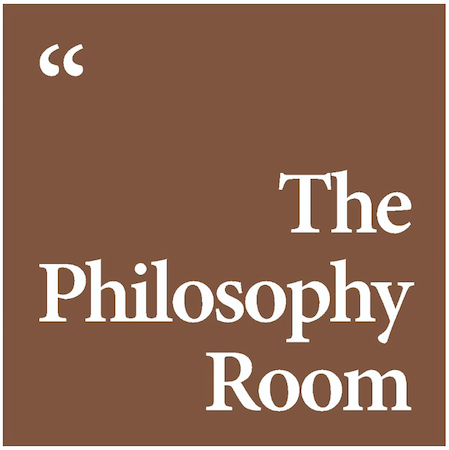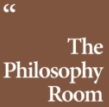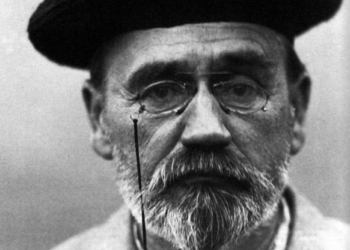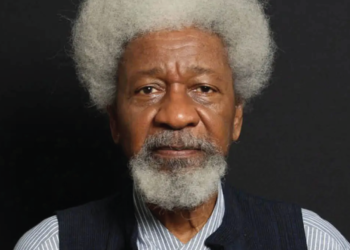Islamic Existentialism
1) Main Principles
Freedom of Choice:
At the core of Islamic Existentialism is the recognition of human beings’ free will to make choices. This principle aligns with the Islamic concept of free will (qadar), emphasizing that individuals have the autonomy to shape their destinies through their choices and actions.
Search for Meaning:
Islamic Existentialism underscores the quest for meaning and purpose in life. It encourages individuals to explore their existence within the broader context of Islamic teachings and ethics, seeking a meaningful life that aligns with their faith.
Responsibility and Accountability:
This principle emphasises that individuals are accountable for their choices and actions before God (Allah). Islamic Existentialism aligns with Islamic concepts of moral responsibility (taklif) and the Day of Judgment, reinforcing the idea that humans will be judged based on their intentions and deeds.
Authenticity:
Islamic Existentialism encourages individuals to live authentically by being true to themselves while adhering to Islamic principles. It recognises that authenticity involves embracing one’s faith and identity while navigating the challenges of modern existence.
Doubt and Questioning:
Unlike traditional Islamic thought, Islamic Existentialism welcomes doubt and questioning as essential aspects of faith and self-discovery. It believes that genuine faith arises from an individual’s exploration and understanding of their beliefs.
Existential Anxiety:
Islamic Existentialism acknowledges the existential anxiety and uncertainty that individuals may face in their lives. It suggests that grappling with these anxieties can lead to a deeper spiritual and existential understanding.
2) Sadra and Existentialism
Islamic Existentialism draws significant influence from the works of the renowned Islamic philosopher Mulla Sadra (Sadr al-Din al-Shirazi), whose philosophical contributions in the 17th century have had a profound impact on the development of existentialist thought within an Islamic context.
Mulla Sadra’s philosophy, often referred to as the Transcendent Philosophy (al-Hikmah al-Muta’aliyah), presents a unique blend of Islamic mysticism (Sufism), metaphysics, and existentialism. One of his key contributions lies in his concept of “existential substantial motion” (al-harakat al-jawhariyyah al-wujudiyyah), which aligns with existentialist notions of individual existence.
In Sadra’s view, existence is not static but is in a constant state of flux and motion. This concept bears a striking resemblance to existentialism’s emphasis on individual existence as a dynamic process filled with choices and actions. It underscores the idea that individuals are not passive entities but active agents responsible for shaping their own destinies.
Furthermore, Sadra’s philosophy places a strong emphasis on the individual’s spiritual journey and quest for self-realisation. This aligns with the existentialist pursuit of authenticity and the search for meaning in one’s existence. Both Sadra and existentialism encourage individuals to delve into the depths of their consciousness and confront the essential questions of existence.
Another significant parallel between Sadra’s philosophy and existentialism is the recognition of the interconnectedness between the individual and the divine. Sadra believed in the concept of the “unity of existence” (wahdat al-wujud), which posits that all existence emanates from and is ultimately unified with God. This notion resonates with existentialist ideas of individuals grappling with their relationship with the transcendent and the search for a meaningful connection with the divine.
3) Iqbal and Existentialism
Allama Muhammad Iqbal, often referred to as the poet-philosopher of the East, made significant contributions to Islamic thought and philosophy in the 20th century. While Iqbal’s ideas are deeply rooted in Islamic spirituality and mysticism, there are some intriguing parallels between his thought and existentialism, particularly in areas related to individuality, self-realization, and the quest for meaning.
Iqbal’s philosophical works, such as “The Reconstruction of Religious Thought in Islam,” advocate a form of personal and spiritual transformation that aligns with existentialist notions of authenticity and individuality. He emphasised the development of a strong self-identity and a sense of purpose as essential for individuals to engage meaningfully with the world.
One notable area of convergence between Iqbal’s thought and existentialism is the emphasis on the individual’s role as an active agent in shaping their destiny. Iqbal, much like existentialist philosophers, stressed the significance of human will and choice in determining one’s path in life. He encouraged individuals to exercise their free will and take responsibility for their actions, echoing existentialist ideas of existential freedom and personal responsibility.
Iqbal’s poetry and philosophy often revolved around the idea of self-discovery and self-realisation. He believed that individuals should embark on a profound journey of introspection and self-awareness, exploring their innermost thoughts and emotions. This introspective process mirrors the existentialist concept of authentic existence, wherein individuals strive to live in accordance with their true selves.
Existentialism places great importance on the search for meaning in life, and so did Iqbal in an Islamic context. He encouraged individuals to seek a deeper understanding of their purpose in the world and their relationship with God. This spiritual quest for meaning and the encounter with the divine are themes that resonate with both Iqbal’s teachings and existentialist philosophy.
Iqbal’s vision of a reinvigorated and spiritually awakened Muslim community also aligns with existentialist notions of individual and collective renewal. He believed that through individual self-realisation and moral transformation, the Muslim ummah (community) could overcome its challenges and achieve a higher state of existence, reminiscent of existentialism’s emphasis on personal and societal transformation.
4) God and man in existentialism
Existentialism is a philosophical movement that grapples with the relationship between God and man in a unique and often provocative way. At its core, existentialism is characterised by a focus on human existence and individual freedom. This perspective has led to various viewpoints regarding the role of God in the lives of existentialist thinkers.
For many existentialist philosophers, God’s existence is a subject of profound ambiguity. Existentialism emerged in a largely secular and atheistic context, and some prominent existentialists, such as Jean-Paul Sartre and Albert Camus, rejected the idea of a transcendent God. They asserted that human existence is fundamentally absurd and devoid of inherent meaning, and that belief in God as a source of purpose and morality was a form of “bad faith” or self-deception.
However, other existentialist thinkers, like Søren Kierkegaard, maintained a deep engagement with religious themes. Kierkegaard explored the tension between faith and doubt, asserting that genuine faith often involves moments of existential despair and uncertainty. He argued that authentic faith requires a “leap of faith,” a profound and deeply personal commitment to God in the face of existential anxiety.
Existentialism’s treatment of God also intersects with the concept of existential freedom. Existentialists emphasise human agency and the ability to make choices in a world where God’s guidance is often unclear or absent. This perspective places a heavy burden of responsibility on individuals, as they must navigate the complexities of existence without relying on divine commandments or a predetermined moral framework.
Existentialist thought recognises the potential for individuals to create their own values and meanings in the absence of divine guidance. This existential freedom can be both liberating and daunting, as it requires individuals to confront the existential void and make choices that define their lives.
5) European Existentialism vs Islamic Existentialism
Cultural and Religious Context:
European Existentialism emerged primarily in the 19th and 20th centuries in a predominantly secular, post-Christian European context. It often grappled with questions of meaning, freedom, and existence in a world where traditional religious frameworks had weakened.
Islamic Existentialism, on the other hand, is rooted in Islamic thought and theology. It integrates Islamic principles and spirituality into existentialist themes. It emerged in a predominantly Islamic cultural and religious context, where faith remains a central aspect of daily life.
View on God and Faith:
European Existentialism, particularly in the works of Jean-Paul Sartre and Albert Camus, tends to be atheistic or agnostic. It often explores existential themes in the absence of God and divine guidance, emphasising human freedom and the responsibility to create meaning.
Islamic Existentialism maintains a belief in God and incorporates Islamic concepts of divine will, accountability, and the search for meaning within the framework of faith. It explores existential questions while acknowledging the presence of a transcendent divine reality.
Notions of Freedom and Responsibility:
Both traditions share a strong emphasis on individual freedom and responsibility. European Existentialism highlights the anguish and burden of freedom, where individuals must create their own values and meaning in a seemingly indifferent universe.
Islamic Existentialism also emphasises individual choice and responsibility but within the context of Islamic ethics and moral guidelines. It integrates the concept of human free will (qadar) with the responsibility to adhere to Islamic principles.
Concept of Authenticity:
European Existentialism promotes the idea of “authenticity,” wherein individuals are encouraged to live in accordance with their true selves, free from societal expectations or external influences.
Islamic Existentialism encourages authenticity within the boundaries of Islamic faith and identity. It suggests that individuals should be true to their Islamic beliefs and values while navigating the challenges of modern existence.
Spirituality and Mysticism:
Islamic Existentialism often incorporates Sufi mysticism and spiritual introspection as a means to explore existential questions and seek a deeper connection with God.
European Existentialism typically does not delve deeply into mysticism, focusing more on the individual’s relationship with the self and the external world.












